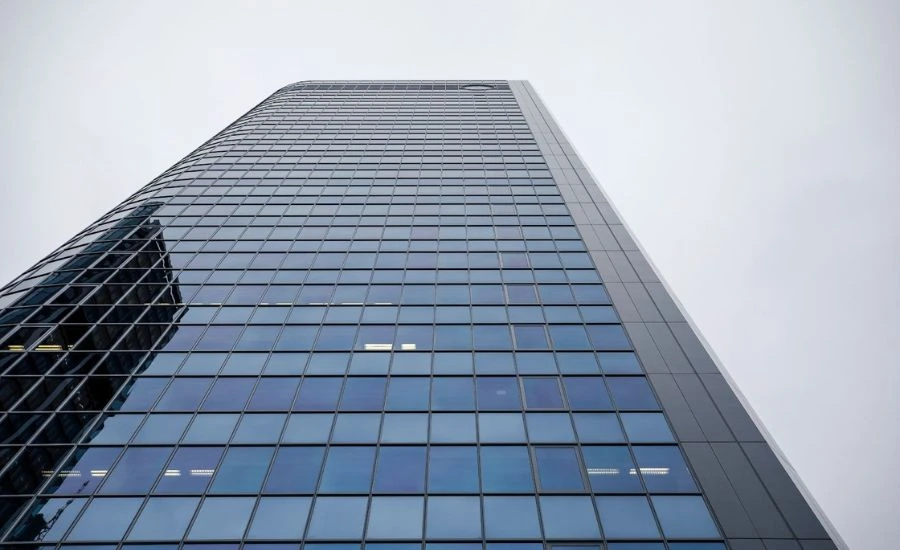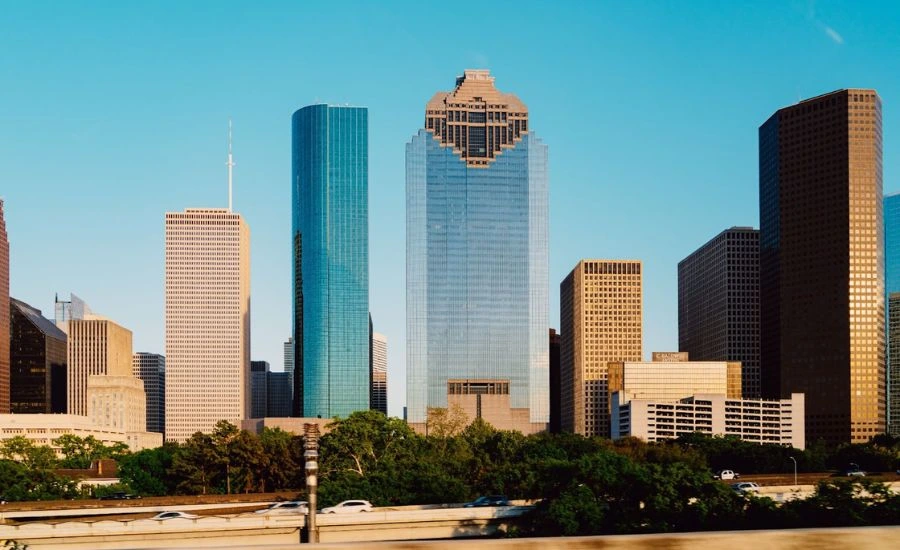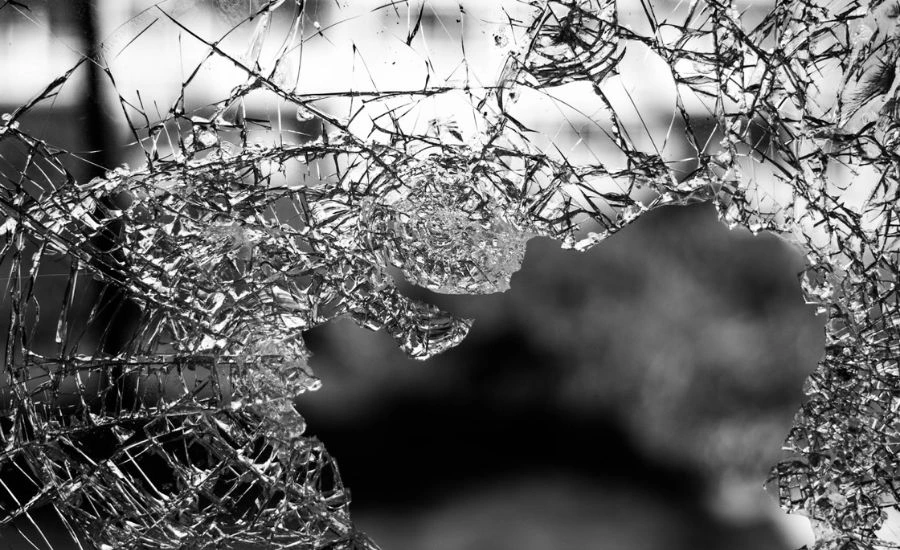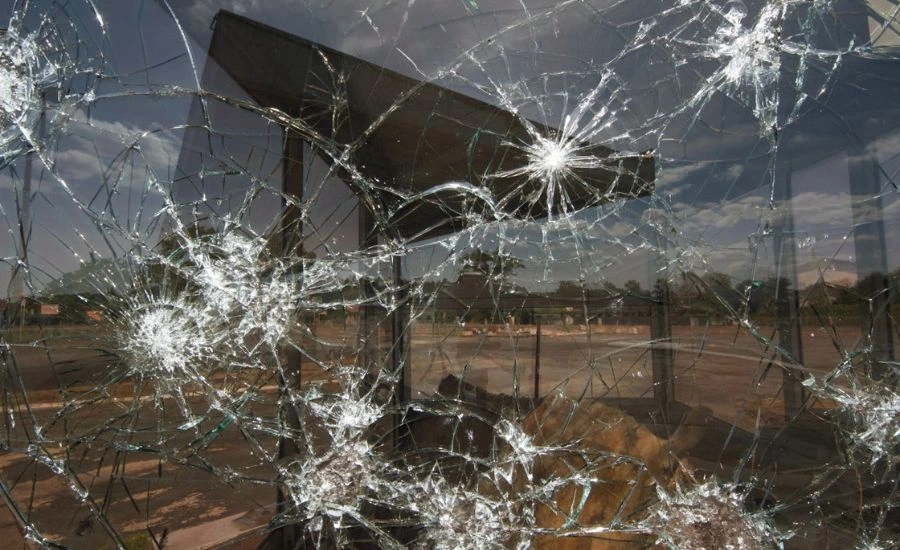Written By: Brad Campbell | February 6, 2023
In cities across the US, including Houston, tempered glass is one of the most common types of commercial glass used for different types of businesses and facilities where human safety is a concern.
This is because tempered glass is stronger than standard annealed glass, and breaks in such a way that it greatly reduces the risks of glass hazards.
But, even though tempered safety glass is about three to four times stronger than annealed glass, it’s not intended to improve security — this is a common misconception about tempered glass.

Tempered glass is strictly a type of safety glass, which is why it’s mainly used for things like passenger vehicle windows, glass furniture and appliances, shower and tub enclosures, and various types of architectural glass.
When tempered glass breaks apart, it crumbles into countless granular pieces of glass, rather than shattering into sharp, jagged shards, which can fly dangerously inwards and cause major injury to anyone nearby.
However, tempered glass is still very vulnerable to impacts. In other words, it won’t do anything to stop a determined intruder from breaking through it to gain access to a business and it doesn’t protect your property against storm damage from flying storm debris.
So, if it doesn’t improve security, why are so many businesses using tempered glass for their commercial doors and windows?
Well, many types of businesses, such as retail stores and office buildings, have lots of large glass doors and windows, and there are people and customers in close proximity to these much of the time.

In the event of an impact that shatters an annealed storefront window while someone is working or shopping near it, it’s very likely that the broken glass could seriously injure them.
Tempered glass, on the other hand, is relatively harmless when it breaks, so it’s much safer to use for lots of big windows that people are constantly close to.
Not only does using tempered glass reduce the risk of injury to employees and customers, it also provides liability protection and reduces potential legal costs in the event of a glass-related accident. Most cities in North America require tempered glass in these vulnerable areas in any modern building. Some older facilities may still have annealed glass, but it is increasingly rare. Tempered glass has become ubiquitous in human impact prone areas.
In fact, many insurance companies may even charge lower premiums to businesses that use tempered safety glass for their glass doors and windows.
If you have a Houston-area business and you’re looking to improve both safety and security on your property, the best alternative to tempered glass is polycarbonate security glazing.
Polycarbonate can be retrofitted on top of your windows, creating a virtually unbreakable protective barrier over the existing glass and saving you the trouble and expense of replacing the windows altogether.
Unlike tempered safety glass, polycarbonate security glazing is not vulnerable to any type of impact, whether it be intentional or accidental.
If criminals try to break into your property using hammers, bats, pry bars, or any other heavy hand tools or objects, their attempts will be met with frustration as their blows bounce right off the polycarbonate glazing shields.
Or, if there is a strong windstorm, flying storm debris isn’t going to break your business’s windows and leave it exposed to rain and wind damage.

In short, polycarbonate glazing provides your property with 24/7 protection against a full range of security threats. It gives you complete peace of mind in knowing that your employees and customers are safe and your business is secure at all times.
When it comes to improving security, especially in terms of forced entry protection, nothing beats polycarbonate glazing.
However, if safety is your primary concern, there’s another, more basic solution you can consider: safety and security window film.
Safety and security window film is a pliable, plastic-based coating that gets applied directly to your existing glass surfaces. This coating reinforces the glass and helps hold shattered shards of glass in place if a surface breaks.

So, although safety and security window film doesn’t prevent your commercial glass from breaking, it does significantly reduce the risks of glass hazards.
This type of window film can also help deter would-be intruders by delaying forced entry attempts, causing them to move on and look for an easier target.
In some cases, you may find that using a combination of polycarbonate security glazing and safety and security window film is right for you and your property (and your budget).
For example, you could retrofit all your most vulnerable doors and windows with polycarbonate glazing shields to provide full access denial, and apply window film to hard-to-reach windows for minimal impact protection and glass hazard mitigation.

Every business and commercial facility has a unique set of safety and security needs, and there’s no one-size-fits all approach to improving your property’s safety and security.
We’re here to help you choose and install the right security glazing for your needs and goals.
Contact us today or have your local glass contractor in Houston give us a call for a free consultation.

HOW CAN WE HELP YOU?
